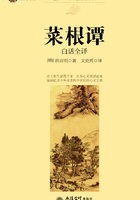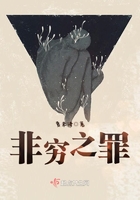Besides ?ama? and Utu, the latter his ordinary Sumerian name, the sun-god had several other non-Semitic names, including /Gi?nu/,[*] "the light," /Ma-banda-anna/, "the bark of heaven," /U-ê/, "the rising sun," /Mitra/, apparently the Persian Mithra; /Ume-?ima?/ and Nahunda, Elamite names, and Sahi, the Kassite name of the sun.He also sometimes bears the names of his attendants Kittu and Mê?aru, "Truth"and "Righteousness," who guided him upon his path as judge of the earth.
[*] It is the group expressing this word which is used for ?ama? in the name of ?ama?-?um-uk?n (Saosduchinos), the brother of A??ur-bani-apli (Assurbanipal).The Greek equivalent implies the pronunciation /?awa?/, as well as /?ama?/.
Tammuz and I?tar.
The date of the rise of the myth of Tammuz is uncertain, but as the name of this god is found on tablets of the time of Lugal-anda and Uru-ka-gina (about 3500 B.C.), it can hardly be of later date than 4000 B.C., and may be much earlier.As he is repeatedly called "the shepherd," and had a domain where he pastured his flock, Professor Sayce sees in Tammuz "Daonus or Daos, the shepherd of Pantibibla,"who, according to Berosus, ruled in Babylonia for 10 /sari/, or 36,000years, and was the sixth king of the mythical period.According to the classic story, the mother of Tammuz had unnatural intercourse with her own father, being urged thereto by Aphrodite whom she had offended, and who had decided thus to avenge herself.Being pursued by her father, who wished to kill her for this crime, she prayed to the gods, and was turned into a tree, from whose trunk Adonis was afterwards born.Aphrodite was so charmed with the infant that, placing him in a chest, she gave him into the care of Persephone, who, however, when she discovered what a treasure she had in her keeping, refused to part with him again.Zeus was appealed to, and decided that for four months in the year Adonis should be left to himself, four should be spent with Aphrodite, and four with Persephone, and six with Aphrodite on earth.He was afterwards slain, whilst hunting, by a wild boar.
Nothing has come down to us as yet concerning this legend except the incident of his dwelling in Hades, whither I?tar, the Babylonian Venus, went in search of him.It is not by any means unlikely, however, that the whole story existed in Babylonia, and thence spread to Ph?nicia, and afterwards to Greece.In Ph?nicia it was adapted to the physical conditions of the country, and the place of Tammuz's encounter with the boar was said to be the mountains of Lebanon, whilst the river named after him, Adonis (now the Nahr Ibrahim), which ran red with the earth washed down by the autumn rains, was said to be so coloured in consequence of being mingled with his blood.The descent of Tammuz to the underworld, typified by the flowing down of the earth-laden waters of the rivers to the sea, was not only celebrated by the Ph?nicians, but also by the Babylonians, who had at least two series of lamentations which were used on this occasion, and were probably the originals of those chanted by the Hebrew women in the time of Ezekiel (about 597 B.C.).Whilst on earth, he was the one who nourished the ewe and her lamb, the goat and her kid, and also caused them to be slain--probably in sacrifice."He has gone, he has gone to the bosom of the earth," the mourners cried, "he will make plenty to overflow for the land of the dead, for its lamentations for the day of his fall, in the unpropitious month of his year." There was also lamentation for the cessation of the growth of vegetation, and one of these hymns, after addressing him as the shepherd and husband of I?tar, "lord of the underworld," and "lord of the shepherd's seat,"goes on to liken him to a germ which has not absorbed water in the furrow, whose bud has not blossomed in the meadow; to the sapling which has not been planted by the watercourse, and to the sapling whose root has been removed.In the "Lamentations" in the Manchester Museum, I?tar, or one of her devotees, seems to call for Tammuz, saying, "Return, my husband," as she makes her way to the region of gloom in quest of him.Ere?-ê-gala, "the lady of the great house"(Persephone), is also referred to, and the text seems to imply that I?tar entered her domain in spite of her.In this text other names are given to him, namely, /Tumu-giba/, "son of the flute," /Ama-elaggi/, and /?i-umunnagi/, "life of the people."The reference to sheep and goats in the British Museum fragment recalls the fact that in an incantation for purification the person using it is told to get the milk of a yellow goat which has been brought forth in the sheep-fold of Tammuz, recalling the flocks of the Greek sun-god Helios.These were the clouds illuminated by the sun, which were likened to sheep--indeed, one of the early Sumerian expressions for "fleece" was "sheep of the sky." The name of Tammuz in Sumerian is Dumu-zi, or in its rare fullest form, Dumu-zida, meaning "true" or "faithful son." There is probably some legend attached to this which is at present unknown.
In all probability I?tar, the spouse of Tammuz, is best known from her descent into Hades in quest of him when with Persephone (Ere?-ki-gal)in the underworld.In this she had to pass through seven gates, and an article of clothing was taken from her at each, until she arrived in the underworld quite naked, typifying the teaching, that man can take nothing away with him when he departs this life.During her absence, things naturally began to go wrong upon the earth, and the gods were obliged to intervene, and demand her release, which was ultimately granted, and at each gate, as she returned, the adornments which she had left were given back to her.It is uncertain whether the husband whom she sought to release was set free, but the end of the inscription seems to imply that I?tar was successful in her mission.















